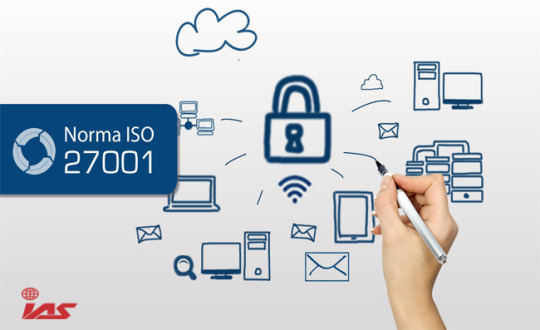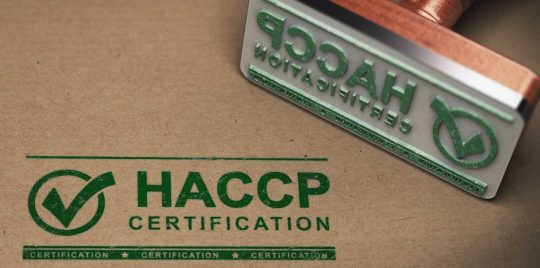Don't wanna be here? Send us removal request.
Text
ISO 13485 Awareness Training Online
The online self-driven ISO 13485 awareness training course provided by EAS has been designed to help individuals learn and demonstrate commitment to quality and customer satisfaction, as well as continuously improve a quality management system for the medical device manufacturing industry. The objective of the training is to provide you with an overview of the requirements of ISO 13485 as a tool for business improvement.

0 notes
Text
ISO 27001 Internal Auditor Course Online
The course objective is to enable individuals to understand the key concepts in information security management system auditing and to enhance their internal auditing skills to become certified ISO 27001 internal auditors. The ISO 27001 internal auditor course online also helps participants plan, conduct, and manage internal audits of an organization following ISO 19011- Principles & Guidelines of Auditing.

0 notes
Text
ISO INTERNAL AUDITOR COURSE ONLINE
Empowering Assurance Systems (EAS) offers ISO internal auditor training online. Candidates who successfully complete our online internal auditor course will receive internal auditor certification online.

0 notes
Text
IATF Internal Auditor Training Online
The aim of this training program is for participants to be able to understand the fundamental idea in a Quality Management System (Automotive sector) audit and to improve their auditing skills. It also aids and assists the attendees in planning, executing, and managing internal audits of a company in accordance with ISO 19011 - Principles & Guidelines of Auditing.
iatf internal auditor training online

0 notes
Text
IATF 16949 Training Online
The International Automotive Task Force (IATF) 16949 is a worldwide technical specification and quality management standard for the automobile sector. It covers all you need to know about designing, developing, manufacturing, installing, and servicing automotive goods using best practices. Boost your internal audit capabilities by improving your auditing skills in accordance with IATF 16949.
iatf 16949 training online

0 notes
Text
HACCP Course Online (Foundation Training)
The aim of this HACCP Course Online offered by EAS is to provide participants with a thorough understanding of the principles and practices of Hazard Analysis and Critical Control Points (HACCP). Participants will also be introduced to the food safety management system (FSMS) based on HACCP. haccp course online

0 notes
Text
ISO INTERNAL AUDITOR COURSE ONLINE
The best approach to acquire the abilities and knowledge needed to be an effective internal auditor is to take an ISO internal auditor course online. The courses provide a comprehensive analysis of the auditing process, including how to implement ISO standard requirements within an organization. Participants will study auditing principles, how to plan and execute an audit, as well as how to communicate their findings within an organization.

0 notes
Text
ISO 17025 Internal Auditor Training
About ISO 17025 Internal Auditor Training
ISO 17025 Internal Auditor Training provides attendees with the skills and knowledge necessary to perform internal audits of quality management systems in accordance with ISO 17025. The course covers the requirements of ISO 17025, the audit process, and techniques for assessing compliance.
Importance
ISO 17025 is the international standard that specifies the requirements for a quality management system (QMS) when performing calibration and testing activities. A QMS that complies with ISO 17025 can provide confidence to customers and regulatory agencies that the laboratory’s results are accurate and reliable.
Internal auditing is an important part of a successful ISO 17025 QMS. An internal auditor is responsible for independently assessing the compliance of the laboratory’s QMS with the requirements of ISO 17025. The skills and knowledge acquired in an ISO 17025 Internal Auditor course can help attendees conduct effective and efficient audits that will help their laboratory achieve and maintain compliance with ISO 17025.
Benefits
Enhances your understanding of the requirements of ISO 17025
Provides you with the skills to conduct an internal audit of a laboratory against the requirements of ISO 17025
Helps you identify and assess compliance risks in your laboratory
Enables you to develop an action plan to address any deficiencies found during the internal audit
Enhances your ability to manage and improve laboratory quality
Helps you to fulfill your role as an internal auditor of a laboratory against the requirements of ISO 17025
Who Can Attend?
An ISO 17025 Internal Auditor Course is designed for quality management system auditors, laboratory managers, and personnel who are responsible for the development and implementation of a QMS in accordance with ISO 17025. This course is also beneficial for anyone who wants to gain a better understanding of the requirements of ISO 17025 and the audit process.
Pre-requisites
There are no mandatory pre-requisites for attending an ISO 17025 internal auditor training course. However, it is recommended that attendees have a basic understanding of quality management systems and the audit process.
Procedure to Join a Training Program
The first step is to find a training provider that offers an ISO 17025 Internal Auditor Training course. Once you have found a training provider, contact them to find out more information about the course and schedule a date for attendance. The next step is to attend the course and successfully pass the examination at the end. Upon successful completion of the examination, you will be certified as an ISO 17025 Internal Auditor.
Conclusion
An ISO 17025 Internal Auditor Training course is an important investment for any laboratory that wants to ensure compliance with the requirements of ISO 17025. The skills and knowledge acquired in this course can help attendees conduct effective and efficient audits that will help their laboratory achieve and maintain compliance with ISO 17025.
Read more: iso 17025 training online
0 notes
Text
ISO INTERNAL AUDITOR COURSE ONLINE – SELF LEARNING
Empowering Assurance Systems (EAS) offers ISO internal auditor training online. Candidates who successfully complete our online internal auditor course will receive internal auditor certification online.

0 notes
Text
What kind of internal auditor Training should you employ?
Many people simply rush in to prepare a checklist and perform the ISO 27001 internal auditor Training– the sooner this “needless” job is done, the better. But even a rush will only create problems, and make the internal audit longer than necessary.
So, let’s see what you have to prepare to make this job more efficient. And, is this job really such a waste of time?
There are a few ways to perform an ISO 27001:2013 internal auditor Training:
Employ a full-time internal auditor Training. This is suitable only for larger organizations who would have enough work for such a person (some types of organizations – e.g., banks – are obliged by law to have such functions).
Employ part-time internal auditor Training. This is the most common situation – the organizations use their own employees to perform internal audits, who do so when required (e.g., a couple of times a year) alongside their regular work. One important thing to pay attention to: in order to avoid any conflict of interest (auditors cannot audit their own work), there should be at IAS two internal auditors so one could audit the regular job of the other. See also:
Employ an Internal auditor Training from outside of the organization. Although this is not a person employed in the organization, it is still considered an internal audit because the audit is performed by the organization itself, according to its own rules. Usually, this is done by a person who is knowledgeable in this field (independent Training or similar). See also in (link)
Options to consider:
Depending on whether you have already implemented ISO 9001 certification (or some other ISO management standard), and which profile of internal auditor you have, you have some options listed below. You should also study the legislation, because some industries (e.g., financial) have special rules regarding internal auditor Training.
Perform one audit or a series of audits throughout the year. If you are a small company, a single audit during the one-year period will be enough; however, if you are a large company, you might want to plan to perform an audit in one department in January, in another department in February, etc.(eg)
Use the same rules and auditor for other standards as well. If you already implemented ISO 9001 Certification, you can actually use the same internal audit procedure – you don’t need to create a new document just for ISO 27001 Internal Auditor Training. Further, the same auditor can perform internal audits for all those systems at the same time – if such person has knowledge of all these standards, and has average knowledge about IT, he or she will be perfectly capable of doing a so-called integrated internal audit, thereby saving time for everyone.
Write an internal audit procedure and a checklist, or not. A written procedure that would define how the internal audit is performed is not mandatory; however, it is certainly recommended. Normally, the employees are not very familiar with internal audits, so it is a good thing to have some basic rules written down – unless, of course, auditing is something you do on a daily basis. It’s the same with the internal audit checklist – it is not mandatory, but is certainly useful for beginners.
Required documentation for ISO 27001 Internal Auditor Training:
You should have the following documents regarding your internal audit:
Internal audit procedure (not mandatory) – this procedure defines the basic rules for performing the audit: how to select the auditors, how the audits are planned, the elements of conducting the audit, the follow-up activities, and how to report from the audits.
Internal audit program (mandatory) – this is where audits are planned at the annual level, including their criteria and scope.
Internal audit checklist (not mandatory) – this is a checklist that helps the internal auditor not to forget something during the internal audit.
Internal audit report (mandatory) – this is where the internal auditor will report on the nonconformities and other findings.
The role of top management:
Top management must also get involved in internal audits – from approving the procedure and appointing the internal auditor, to accepting the audit program and reading the internal audit report. These activities should not be delegated to lower levels in the hierarchy, because this could bring the internal auditor into a conflict of interest, and besides, some important information might not find its way to the top.
And, most important of all, top management should make a conscious decision that they will accept and support the internal audit as something that is useful for the business.
The purpose of the internal audit
At first sight, the internal audit probably looks like an overhead expense. However, internal audits can enable you to discover problems (i.e., nonconformities) that would otherwise stay hidden and would therefore harm your business. Let’s be realistic – it is human nature to make mistakes, so it’s impossible to have a system with no mistakes; it is, however, possible to have a system that improves itself and learns from its mistakes.
Internal audits are a crucial part of such a system – they will be the one to tell you if your system really works or not.
Don’t wait for clients to come and knock on your door for ISO 27001 Internal Auditor Training:
Be proactive – don’t trust in luck. Work and develop your qualifications, choose your target clients and make yourself known. To track your progress and evaluate the effectiveness of your actions, consider making a business plan with targets for number of clients and revenue. Choose an right ISO 27001 Internal Auditor in Bangladesh. (For example, visit Empowering Assurance System Private Ltd, Chennai).
IAS Expertise in ISO 27001:2013 Internal Auditor Training
IAS is an accredited certification registrar providing different types of certificates which include the ISO 27001:2013 Internal Auditor Training for various organizations or companies. Our Organization (IAS) expertise in the industry is second to none as we boast of best hands that have gotten relevant experience in ISO 27001:2013 Internal Auditor. Should you need to get ISO 27001:2013 Internal Auditors Training in India, don't hesitate to reach out to us at IAS Pvt. Ltd. IAS mainly focusing to conduct auditor and ensure everything is properly placed towards getting your ISO 27001:2013 Internal Auditor Training.
Read more: integrated iso management system course
0 notes
Text
What kind of internal auditor Training should you employ?
Many people simply rush in to prepare a checklist and perform the ISO 27001 internal auditor Training– the sooner this “needless” job is done, the better. But even a rush will only create problems, and make the internal audit longer than necessary.
So, let’s see what you have to prepare to make this job more efficient. And, is this job really such a waste of time?
There are a few ways to perform an ISO 27001:2013 internal auditor Training:
Employ a full-time internal auditor Training. This is suitable only for larger organizations who would have enough work for such a person (some types of organizations – e.g., banks – are obliged by law to have such functions).
Employ part-time internal auditor Training. This is the most common situation – the organizations use their own employees to perform internal audits, who do so when required (e.g., a couple of times a year) alongside their regular work. One important thing to pay attention to: in order to avoid any conflict of interest (auditors cannot audit their own work), there should be at IAS two internal auditors so one could audit the regular job of the other. See also:
Employ an Internal auditor Training from outside of the organization. Although this is not a person employed in the organization, it is still considered an internal audit because the audit is performed by the organization itself, according to its own rules. Usually, this is done by a person who is knowledgeable in this field (independent Training or similar). See also in (link)
Options to consider:
Depending on whether you have already implemented ISO 9001 certification (or some other ISO management standard), and which profile of internal auditor you have, you have some options listed below. You should also study the legislation, because some industries (e.g., financial) have special rules regarding internal auditor Training.
Perform one audit or a series of audits throughout the year. If you are a small company, a single audit during the one-year period will be enough; however, if you are a large company, you might want to plan to perform an audit in one department in January, in another department in February, etc.(eg)
Use the same rules and auditor for other standards as well. If you already implemented ISO 9001 Certification, you can actually use the same internal audit procedure – you don’t need to create a new document just for ISO 27001 Internal Auditor Training. Further, the same auditor can perform internal audits for all those systems at the same time – if such person has knowledge of all these standards, and has average knowledge about IT, he or she will be perfectly capable of doing a so-called integrated internal audit, thereby saving time for everyone.
Write an internal audit procedure and a checklist, or not. A written procedure that would define how the internal audit is performed is not mandatory; however, it is certainly recommended. Normally, the employees are not very familiar with internal audits, so it is a good thing to have some basic rules written down – unless, of course, auditing is something you do on a daily basis. It’s the same with the internal audit checklist – it is not mandatory, but is certainly useful for beginners.
Required documentation for ISO 27001 Internal Auditor Training:
You should have the following documents regarding your internal audit:
Internal audit procedure (not mandatory) – this procedure defines the basic rules for performing the audit: how to select the auditors, how the audits are planned, the elements of conducting the audit, the follow-up activities, and how to report from the audits.
Internal audit program (mandatory) – this is where audits are planned at the annual level, including their criteria and scope.
Internal audit checklist (not mandatory) – this is a checklist that helps the internal auditor not to forget something during the internal audit.
Internal audit report (mandatory) – this is where the internal auditor will report on the nonconformities and other findings.
The role of top management:
Top management must also get involved in internal audits – from approving the procedure and appointing the internal auditor, to accepting the audit program and reading the internal audit report. These activities should not be delegated to lower levels in the hierarchy, because this could bring the internal auditor into a conflict of interest, and besides, some important information might not find its way to the top.
And, most important of all, top management should make a conscious decision that they will accept and support the internal audit as something that is useful for the business.
The purpose of the internal audit
At first sight, the internal audit probably looks like an overhead expense. However, internal audits can enable you to discover problems (i.e., nonconformities) that would otherwise stay hidden and would therefore harm your business. Let’s be realistic – it is human nature to make mistakes, so it’s impossible to have a system with no mistakes; it is, however, possible to have a system that improves itself and learns from its mistakes.
Internal audits are a crucial part of such a system – they will be the one to tell you if your system really works or not.
Don’t wait for clients to come and knock on your door for ISO 27001 Internal Auditor Training:
Be proactive – don’t trust in luck. Work and develop your qualifications, choose your target clients and make yourself known. To track your progress and evaluate the effectiveness of your actions, consider making a business plan with targets for number of clients and revenue. Choose an right ISO 27001 Internal Auditor in Bangladesh. (For example, visit Empowering Assurance System Private Ltd, Chennai).
IAS Expertise in ISO 27001:2013 Internal Auditor Training
IAS is an accredited certification registrar providing different types of certificates which include the ISO 27001:2013 Internal Auditorr various organizations or companies. Our Organization (IAS) expertise in the industry is second to none as we boast of best hands that have gotten relevant experience in ISO 27001:2013 Internal auditor training onl. Should you need to get ISO 27001:2013 Internal Auditors Training in India, don't hesitate to reach out to us at IAS Pvt. Ltd. IAS mainly focusing to conduct auditor and ensure everything is properly placed towards getting your ISO 27001:2013 Internal Auditor Training.
Read more: iatf internal auditor training online
0 notes
Text
ISO 17025 Lead Auditor Training
What is ISO 17025 Lead Auditor Training?
ISO 17025 Lead Auditor Training is a comprehensive course that provides you with the skills and knowledge required to conduct a lead audit of a management system that conforms to the requirements of ISO 17025. The course is designed for experienced auditors who wish to become certified lead auditors. It covers all aspects of the audit process, from planning to report writing.
Importance
ISO 17025 Lead Auditor Training is important for the success of an organization. It helps in the development of a strong quality management system. The training provides an understanding of the requirements of ISO 17025 and how to implement them effectively. It also teaches how to audit a quality management system and identify areas for improvement. The training is beneficial for both auditors and organizations. Auditors learn the necessary skills to assess compliance with ISO 17025 requirements, while organizations can improve their quality management system and meet the requirements of the standard.
Benefits
You will gain an in-depth understanding of the requirements of ISO 17025 and how to implement them in a laboratory or testing organization.
You will be able to audit a laboratory or testing organization against the requirements of ISO 17025 and certify that they are compliant.
You will be able to develop and implement a quality management system for a laboratory or testing organization based on the requirements of ISO 17025.
You will be able to train laboratory and testing personnel on the requirements of ISO 17025.
You will be able to develop and implement processes for assessing and improving the quality of laboratory or testing operations.
Who Should Attend?
This course is designed for experienced auditors who wish to become certified lead auditors. It is also beneficial for laboratory and testing personnel who want to understand and apply the requirements of ISO 17025. This includes:
Laboratory managers
Laboratory staff
Testing managers
Pre-requisites
You should have a good understanding of the requirements of ISO 17025 and how to apply them in a laboratory or testing organization. You should also be familiar with the audit process and the principles of quality management.
How to Join a Training Program?
To join a training program, you first need to find a training provider that offers the course. The provider will provide you with all the information you need to enroll in the course. You can also find training providers by searching online. Once you have found a provider, contact them and ask for more information about the course. They will be able to tell you everything you need to know about the program, including the dates, location, and cost.
Conclusion
The ISO 17025 Lead Auditor Training is a comprehensive course that gives you the competence and knowledge necessary to carry out a lead audit of a management system that meets the requirements of ISO 17025. The course is beneficial for Both auditors and testing laboratories. Auditors learn the necessary skills to assess compliance with ISO 17025 requirements, while laboratories can improve their quality management system and meet the requirements of the standard.
Read more: ISO 17025 Lead Auditor Training Online
0 notes
Text
The main aim of the ISO 37001 internal auditor training online is to assist and enable individuals in building the specific abilities and practical knowledge needed to assess their company's management of all elements of anti-bribery.
1 note
·
View note